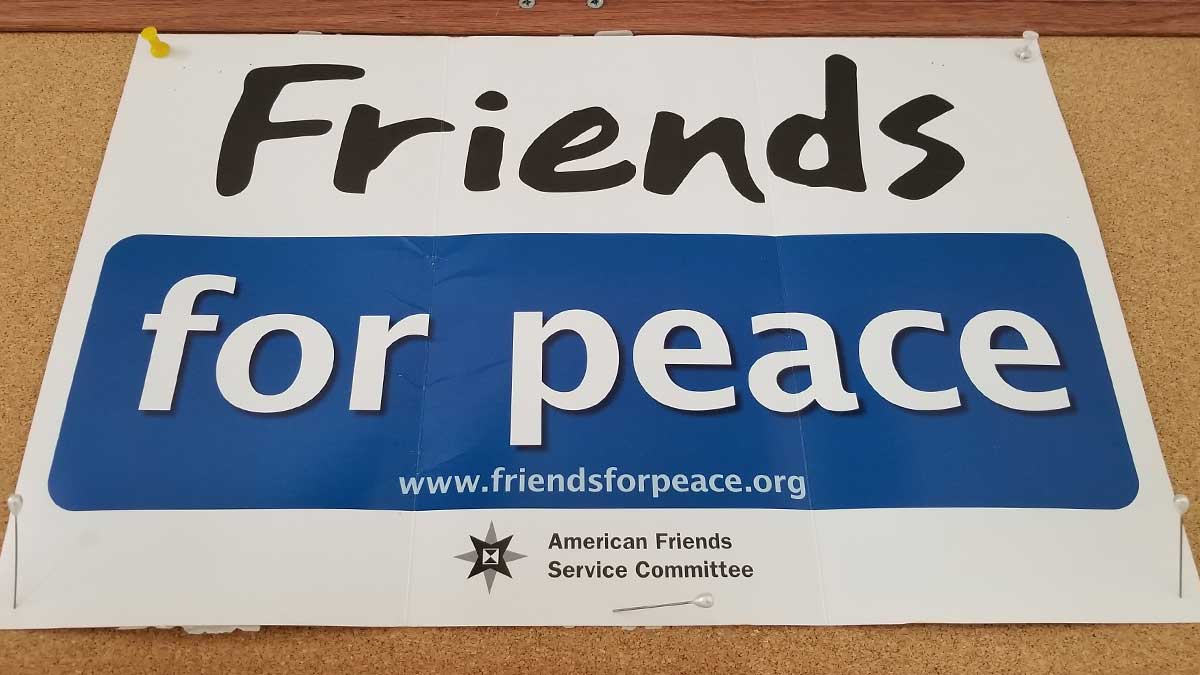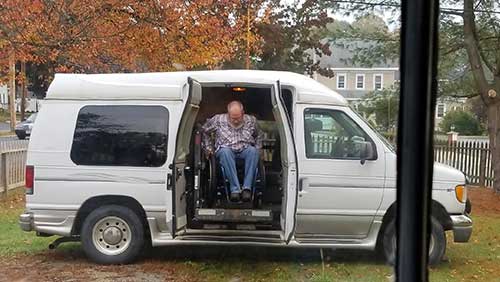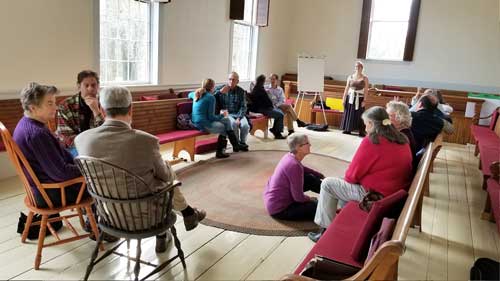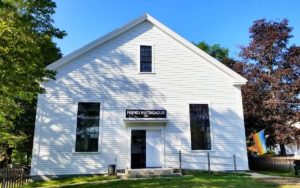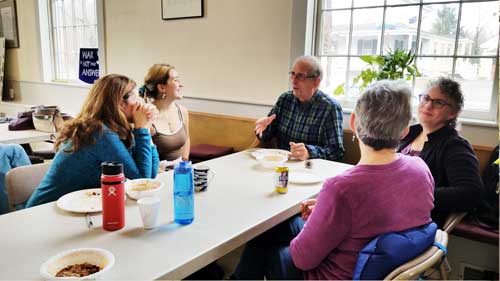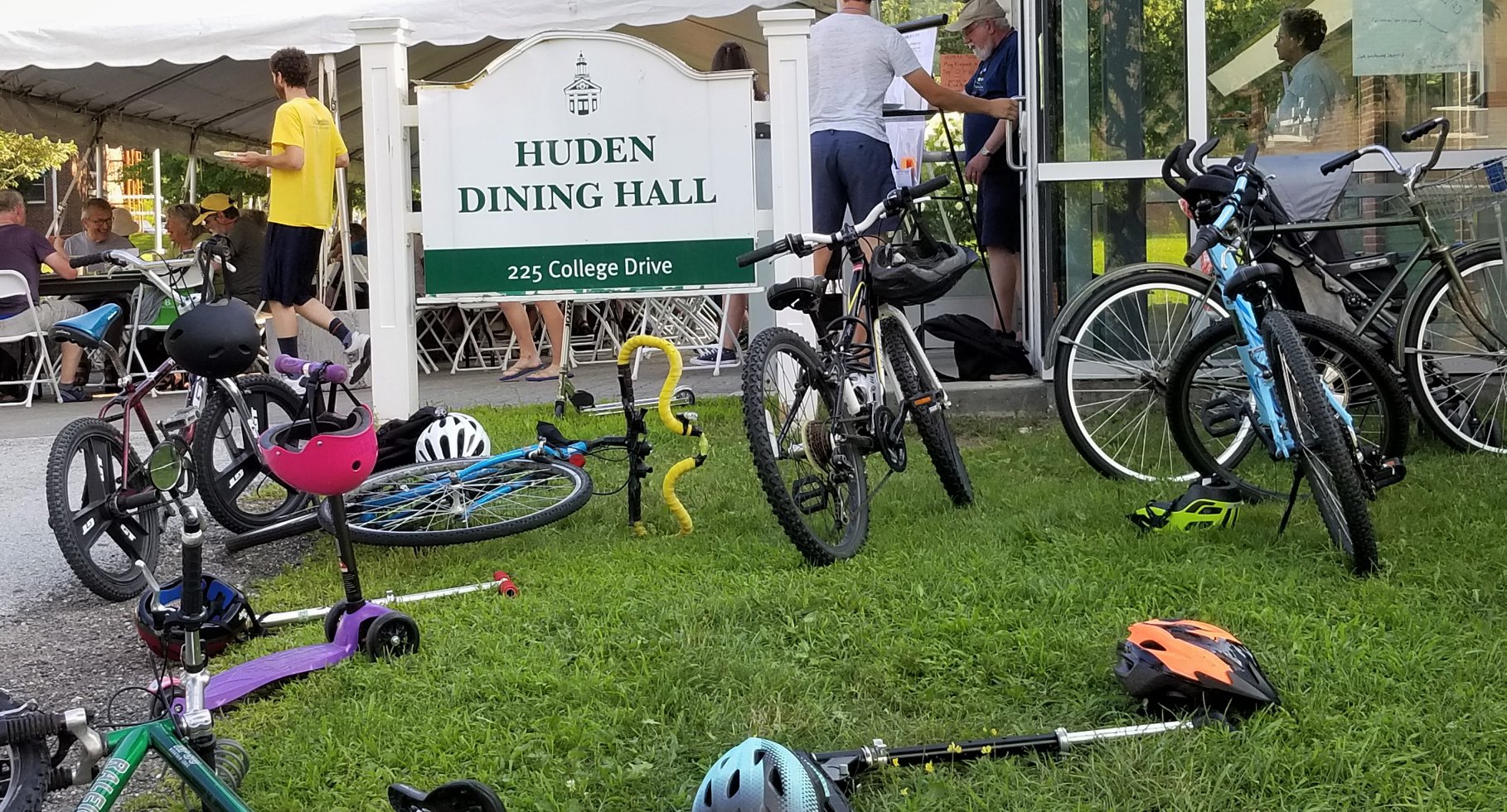Peace Testimony
What is the Peace Testimony?
As Quakers, we are probably best known for our commitment to Peace.
But what is “Peace?”
We offer this as a real question because the concept of peace can have quite a broad definition.
This page offers the ways that Quakers define peace and how many of us take an active approach to Peacemaking.
Even within the Friends community, there are different definitions and a number of areas of focus.
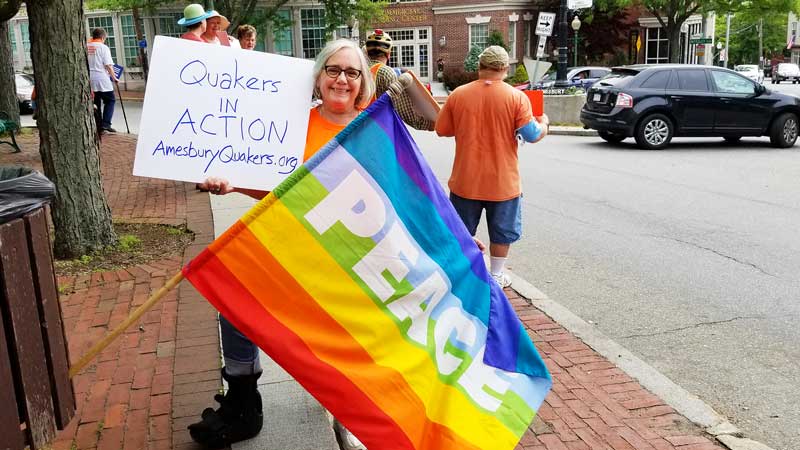
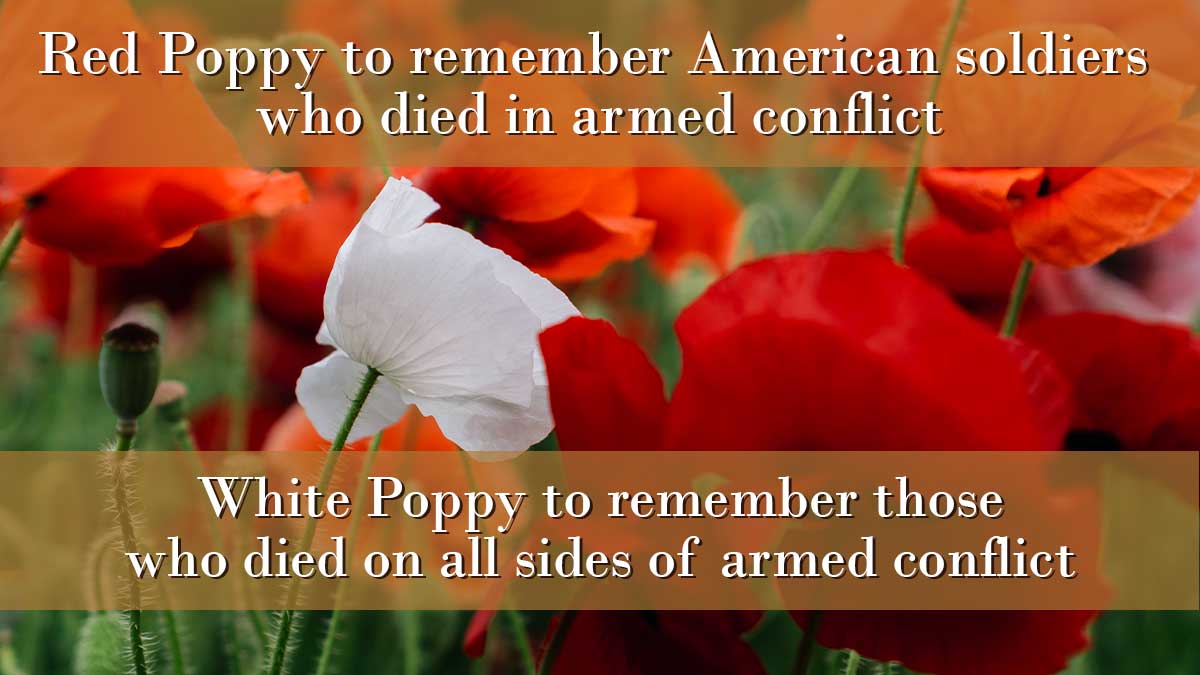
We are considered one of the Peace Churches
Opposed to Armed Conflict
While we’re known for being against war, the truth is that Quakers were not originally opposed to the military…at least not for the first ten years. It wasn’t until 1661 with the continuing revelation of how God was speaking to us that early Quakers began to withdraw from carrying weapons or fighting in armed conflict.
Although Friends have refused to fight since the late 1600s, we have not been passive. Quakers have worked on disarmament, projects of reconciliation, global peacemaking efforts in war-torn parts of the world, and have provided humanitarian aid to all sides of a conflict.
And as Conscientious Objectors many Quakers have participated in “Alternative Service” to their country. Alternative Service is one of the two types of non-combat service available in the United States.
The founder of Quakerism, George Fox stated:
“We utterly deny all outward wars and strife and fightings with outward weapons, for any end or under any pretense whatsoever. And this is our testimony to the whole world.”
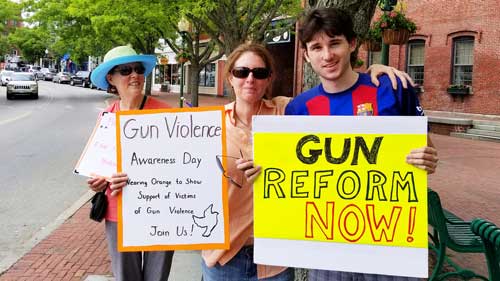
Ending Gun Violence
Just as we oppose and don’t participate in warfare because our lives are focused on peacemaking, Friends are active in the movment to end gun violence of all kinds.
As some public figures have stated, we believe gun violence is a public health emergency in the United States.
Gun Violence Awareness
Members of the Amesbury Friends Peace Center met with the mayor of Amesbury in June of 2019 and asked if he would write a proclamation about Gun Violence Awareness Day.
We were pleased when he agreed.
In the video on the right, Peace Center member Priscilla Jones reads the proclamation to those gathered for Gun Violence Awareness Day 2019.
Watch the Video →
Watch the Video:
Quaker Faith & Activism for Immigrant Justice
Friend Em McManamy explains how her faith informs her activism. We caught up with her as she walked through Amesbury as part of the Pilgrimage for Immigrant Justice in August 2019.
When asked about Quaker activism for social justice, she stated
“It all goes together – it’s of Peace.”
She explained that those on the pilgrimage support policies that welcome immigrants. And finally she said…
“Because we’re all immigrants, right?”
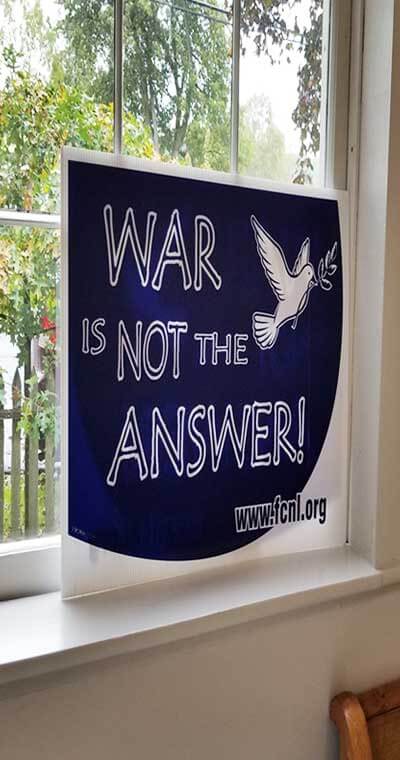
Peacemaking in the World
See our Amesbury Friends Peace Center page
For Quakers, an important part of the Peace Testimony is the seeking of justice for all people all over the world. It’s about ending oppression in all forms, both blatant and the more subtle.
Peacemaking requires ending the causes of conflict and war:
- Poverty
- Inequality
- Intolerance
- Exploitation
Peacemaking requires ending the causes of conflict and war:
- Human Trafficking
- Sexual violence/Sexual slavery
- Starvation
- Disease
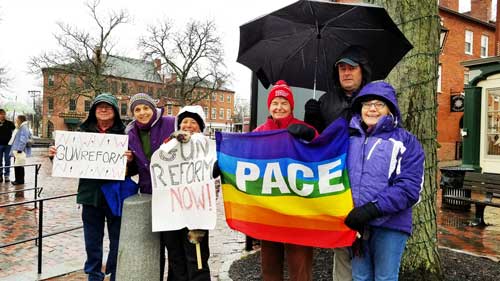
Nonviolence
Believing that there is “that of God in everyone,” Friends are called to respect and care for all, and to “see what love can do” in response to aggression and violence.
To be true to the Peace Testimony, as with all values and practices, this one also “begins at home.” That literally means we practice peace in our home, and it means we practice peace in our home away from home – our Friends Meeting.
What Does it Mean to Practice Nonviolence?
It means a lot of things. Let’s dig in…
To practice nonviolence means never engaging in physical violence and when necessary participating in the de-escalation of physical altercations.
But practicing nonviolence also means not engaging in non-physical hostility either – body language, verbal interactions, or bullying of any kind.
We try to be conscious of how we interact with the world. We work on gaining awareness of our own triggers and practicing emotional self-management.
Some Friends are skilled at de-escalating tensions when those with differing opinions behave aggressively at a vigil or public rally. These Friends feel led to engage with those who are acting out – first and foremost in an attempt to maintain the peace, but also seeking to find common ground that can decrease divisions.
While almost any Friend would consider themselves a peaceful person, managing negative emotions doesn’t always come easy, even for long-time Quakers.
And as a community we participate in peacekeeping trainings and nonviolence workshops.
We find that when we learn and practice communication models and conflict resolution, we become more self-reflective and all our relationships benefit.
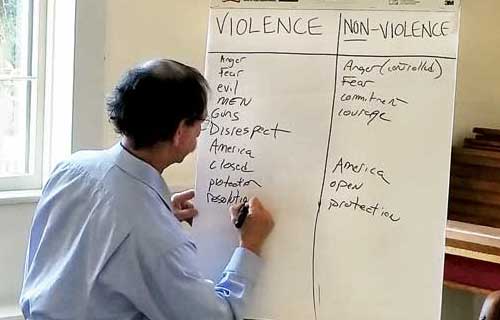
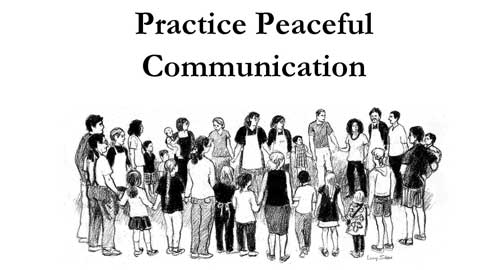
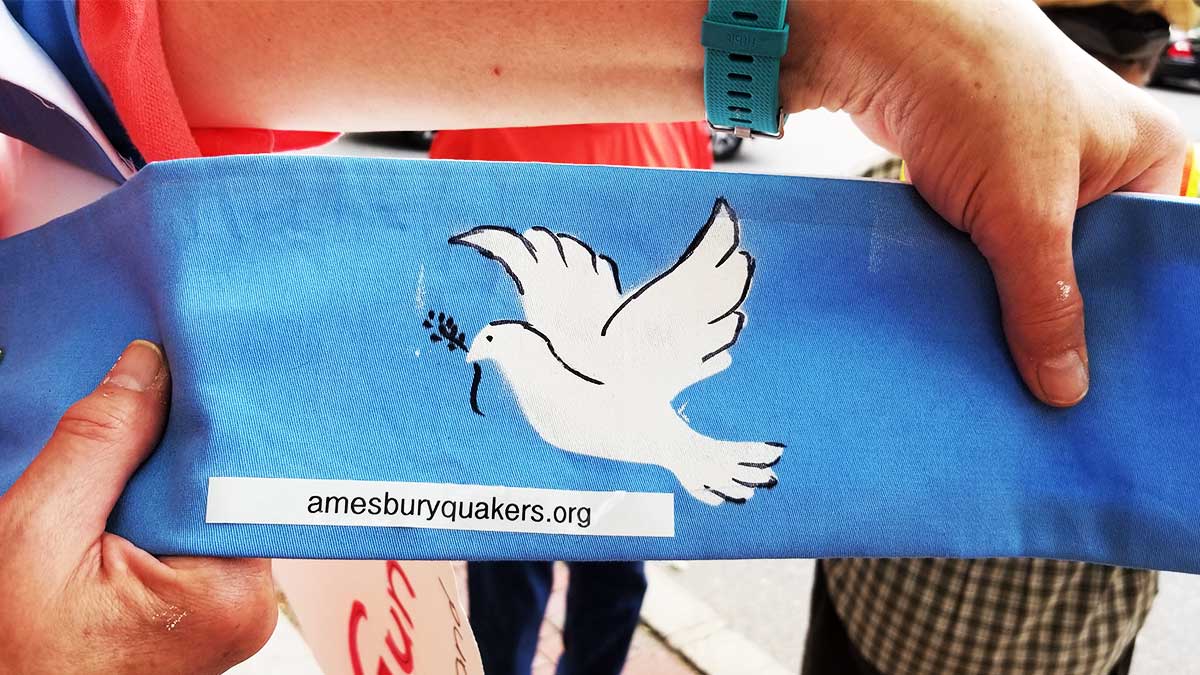
National Legislation
Quaker-related organizations do human rights work and lobbying.

American Friends Service Committee Building Peace web page:
“Peace and security can never be achieved through violence. AFSC advocates for economic and social systems grounded in nonviolence, building recognition that reallocating resources from militaries to peaceful endeavors will increase security worldwide.”
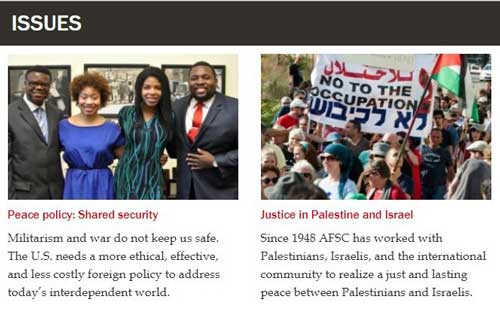

Friends Committee on National Legislation Peacebuilding web page:
“We are changing U.S. foreign policy from one that is overly militarized to one that prevents, mitigates, and transforms violent conflict. We focus on peacefully preventing and ending violent conflict and reforming U.S. counterterrorism policy. By building support in Congress and the administration, we are increasing civilian capacities through the State Department and USAID to address violent conflict and extremism.”
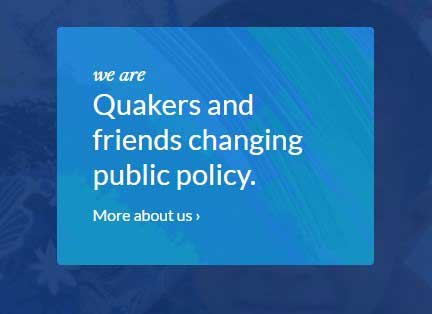
From our Facebook Page: A video clip of the Castleton University war memorial with a Quaker addition
(Annual Sessions 2019)
Pages of the Other Testimonies:
